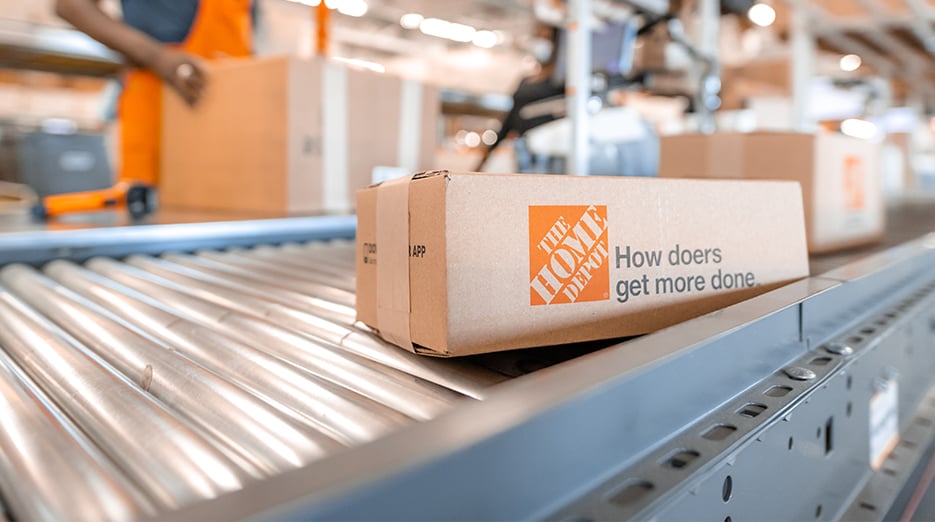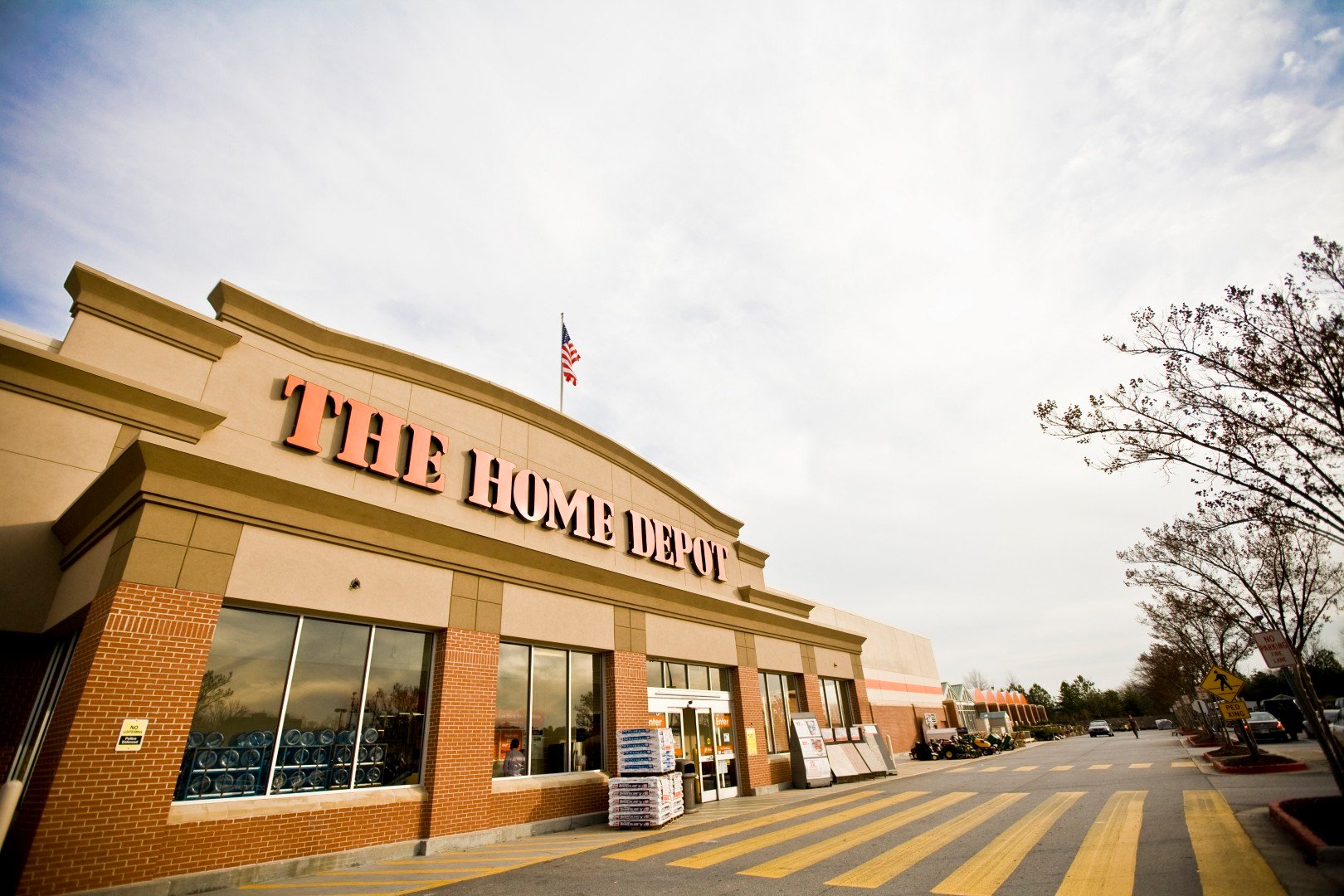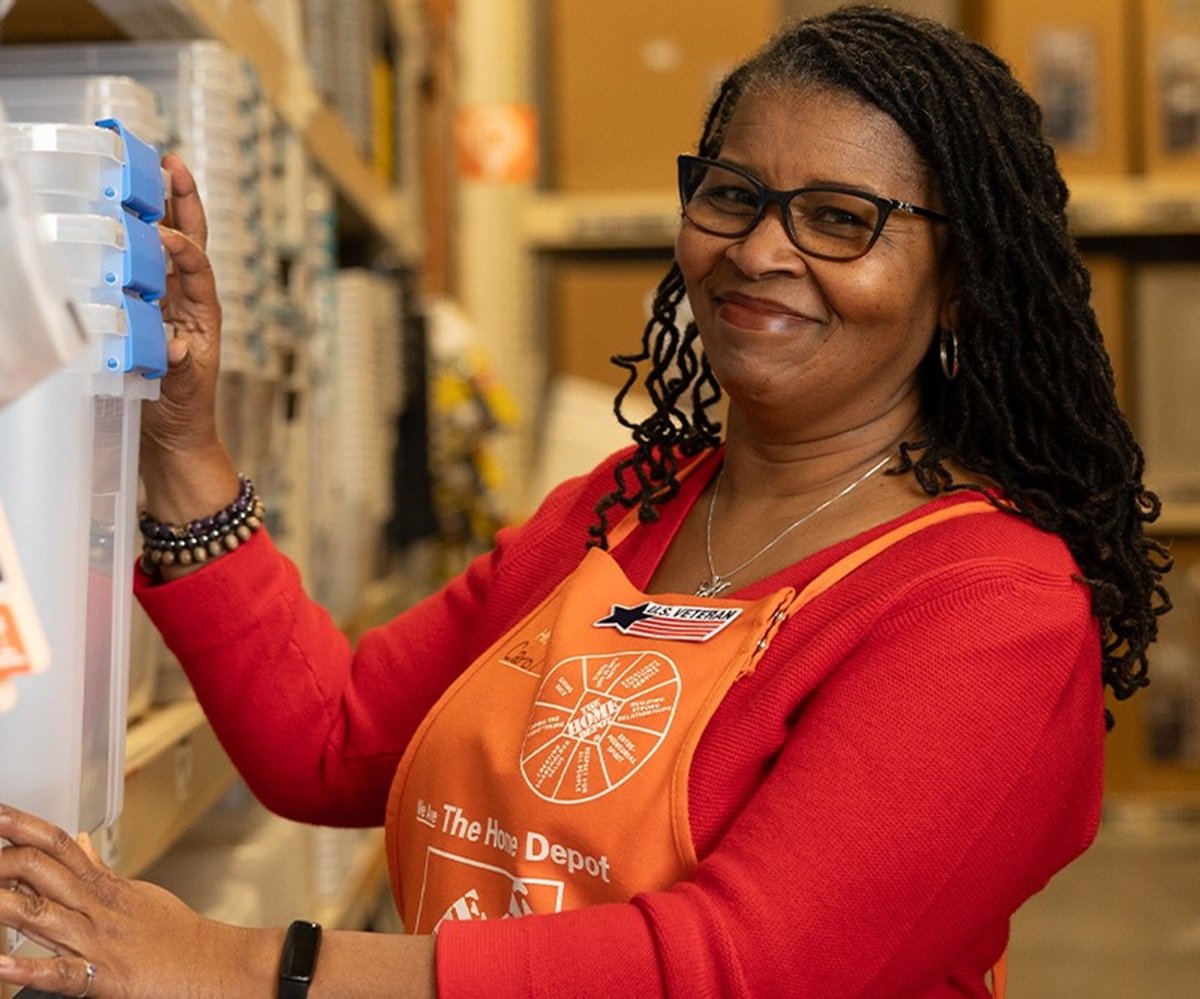
After a less than stellar performance over the winter, Home Depot (HD 0.45%) had some investors worried about its ability to keep growing at the pace it has seen in recent years. This morning's second-quarter report, however, illustrated the strength of the home-improvement giant's earnings and reassured investors that Home Depot remains willing and able to take all available measures to bolster growth far into the future.
A big rebound for revenue and earnings
Home Depot collected $23.8 billion in revenue in the second quarter, which was up 5.7% from the year-ago quarter and higher than the $23.6 billion that most investors expected. In particular, comparable-store sales growth helped pull Home Depot's overall results higher, with a 5.8% jump in comps standing on an even stronger performance of 6.4% for the company's U.S. stores.
On the earnings front, the news was even better. Net income soared to $2.05 billion, or more than a 14% increase year over year. A large reduction in the number of shares outstanding via Home Depot's stock repurchase arrangements sent earnings per share up to $1.52, more than 22% higher than the same quarter a year ago. Investors had expected earnings to come in at $1.45.
Home Depot expects the remainder of the year to be equally strong. The company boosted its full-year earnings guidance by a dime, to $4.52 per share. It expects those results to come partially from higher net income, but the retailer also will use the second half of its planned $7 billion in total stock-buyback activity to help drive EPS higher.

Source: Home Depot.
With rival Lowe's scheduled to report earnings tomorrow, Home Depot's results set the bar high for the home-improvement industry. Moreover, Home Depot's success was far from assured, based on the poor performance of some of its smaller peers so far this earnings season. In particular, specialty flooring retailer Lumber Liquidators stumbled badly in its second quarter, booking a 7.1% drop in comparable-store sales connected to customer counts and average ticket sizes.
Home Depot's success wasn't all about spring
Home Depot executives touted the company's successful bounce-back from a tough winter season. CEO Frank Blake specifically mentioned how "our spring seasonal business rebounded," and given the impact that harsh weather had throughout the economy early in 2014, better conditions definitely played a role in the good results.
But when you compare them with year-ago figures and thereby take away the weather aspect of the results, Home Depot's numbers showed its continued ability to maximize efficiency and productivity in its stores. Traffic rose by 4.2% to nearly 410 million transactions. And even as some complain that the economic recovery hasn't restored purchasing power to the typical American shopper, Home Depot saw average ticket sales climb almost 2% on a year-over-year basis. Sales per square foot of floor space jumped 5.5% to climb above the $400-per-square-foot mark, as Home Depot strives to make the most of all the assets at its disposal.

Source: Home Depot.
Home Depot's strength comes even in the face of doubts about the sustainability of the housing market's recovery. Expectations that interest rates will continue to rise have many worried that homes will become less affordable, bringing recent price gains to a halt and potentially stalling building activity. So far, though, Home Depot hasn't seen any sign of sluggishness, and the work being done to bolster its internal efficiency points to a commitment to make the most of whatever environment in the housing industry it has to deal with.
Will the stock keep soaring?
After the earnings announcement, Home Depot shares climbed to their highest level ever, capping a strong advance since winter's discouraging quarterly report. Yet what's most important for long-term investors is that Home Depot's corporate strategy appears to be working, and that could bring much larger gains over the long run to those who are patient enough to stick with the home-improvement retailer's stock.






